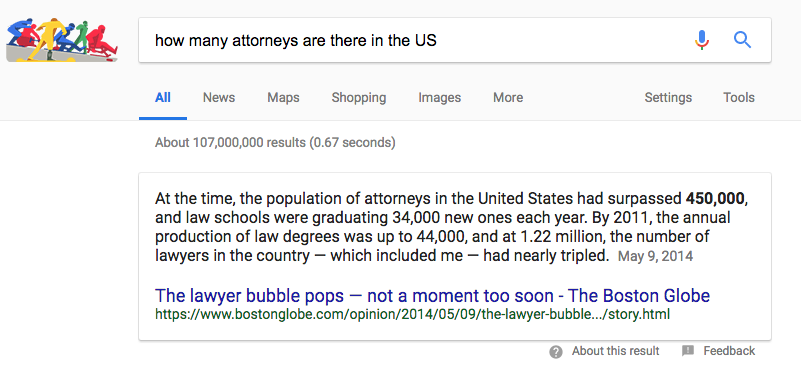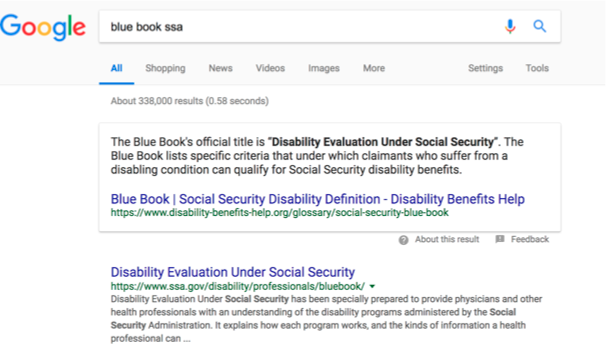If you’ve spent any time invested in search engine optimization (SEO) for your law firm, it’s likely that you’ve heard of “rich snippets.” These are a special type of organic (unpaid) search results that pull a block of text from the body of an article and display it as the first organic result on page one of Google. Rich snippets are increasingly becoming one of the most important search results for attorneys in any area of law. By optimizing your content for rich snippets, your firm might be able to receive more organic traffic than your competitors.
How a Rich Snippet Increases Traffic
Rich snippets are blocks of text pulled from any relevant search result on the first page of Google. Here’s an example of a search a potential claimant might enter:

When rich snippets started hitting search results a couple of years back, SEOs were worried that this would lead to a lower click through rate because users’ questions were answered before someone needed to click on a search result. What we’ve found is quite different—rich snippets lead to a significantly higher click through rate than a regular blue link alone. If you can answer a claimant’s questions about the Social Security application process or comparative negligence in search results, you’ll direct a lot more traffic to your firm’s website.
“Skipping” Your Competitors
Rich snippets are pulled from any page that’s displayed on the first page of Google, not necessarily the first result. The rich snippet is usually called “position 0,” surpassing the first result for organic links. This means that if you have a rich snippet, you’ll not only have two links on Google’s first page of results, but you’ll also have the chance to “jump” over significantly bigger websites if your content can directly answer a user’s question.
Take the SSA for example. Social Security disability attorneys and advocates cannot hope to ever outrank the SSA, as it’s one of the top 1,000 visited websites in the US! But by optimizing for longer and more specific searches, you can have rich snippets “bypass” the SSA and actually outrank it:

In this example, one resource has the rich snippet above the SSA, but the actual domain’s result doesn’t show up until position three otherwise.
Creating Brand Awareness
The final benefit of using rich snippets is you’re creating an opportunity for brand awareness via voice search. More consumers are using voice search than ever before, and some projections put voice search at 50% of all mobile searches by 2020.
Have you ever wondered where results for voice search come from? For any device using Google’s search engine (which is both Android and Apple devices after a very costly venture from Google back in 2017), they come from rich snippets. If potential claimants’ are asking Siri about attorneys in their area, don’t you want her to list your name instead of your competitors?
Optimizing for rich snippets is challenging, and there is no clear-cut way to definitively get the rich snipped for your ideal queries. Many SEOs recommend using structured markup, which tells Google where to pull data from your webpage. You can use schema.org to add structured markup to your website.
You don’t need structured markup to get rich snippets though. Without structured markup, you can still rank for hundreds of rich snippets if you answer the questions your consumers need to know. Analyze the traffic that’s coming to your site from both paid and organic query data. Once you can determine what your consumers actually need answers for, you can revise your top-performing pages to have a Q&A-style format to (hopefully) trigger that ideal rich snippet.